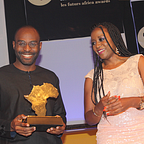Equality requires better brains
Internally, my default thought is, “We’re all one.” But daily, the world tells me we’re not.
I shared that at Opportunity Collaboration (OC) in Mexico this year when my small group of extremely intelligent do-gooders discussed “Power and Poverty.”
Recently, I discovered Jay-Z’s The Story of OJ and Joyner Lucas’ I’m Not Racist at the same time and I still struggle to reconcile why those videos have had such a profound effect on me. Is it because I’ve experienced some racism while in the US? Is it the imbalance of power? Is it recognising the harsh reality of situations I used to consider external to me and mine?
A friend once said to me, “I didn’t know I was black till I got to the US.” While it’s probably true that you would become more aware of your skin color in populations where it’s unusual, there’s more to that statement than the simple awareness. Especially in the US (in my experience). You suddenly take on an identity, complete with its stereotypes (you can’t dance?!), expectations and assignments.
Aight, look
I see a black man aimin’ his gun
But I’d rather see a black man claimin’ his son…
— I’m Not Racist
I’m African. I grew up in Nigeria. Yoruba. Wearing glasses. I already have my own baggages of stereotypes to deal with. But the moment I’m on US soil, I fit an additional set of mostly disparaging boxes. I’m not complaining. Women (50% of human population) face much worse. It’s just quite intriguing.
My elderly parents moved to California recently. I worry about whether my father, distinguished, respected, completely African, faces life-threatening racism there.
Light nigga, dark nigga, faux nigga, real nigga
Rich nigga, poor nigga, house nigga, field nigga
Still nigga, still nigga
— Story of OJ
In college, I studied computer engineering. I struggled with my advanced Physics class till I realised that my difficulty came from the sheer number of exceptions to previously simpler rule sets in complex physics.
Learning to write code, as far as you make proper memory provisions, computers are always programmable to handle multiple pre-defined exceptions to set rules.
Physics or chemistry, religion or poverty, race or politics, our human minds seem too limited to deal with multiple exceptions. That’s where oversimplified boxes come in.
At OC, we concluded that poverty, like racism, still exists because of a primordial need to survive. Our brains tell us that if we hoard and exclude, we will be safe and secure. A computer brain would learn and recall differences more reliably, and hopefully less judgmentally. I suspect computer brains would move humanity closer to social equity ideals.
“In many ways, OC is a microcosm of the world. Power, race, culture, gender, language, ableism and many other dynamics are, and will continue to be, present. Yet, at OC we have the unique opportunity to build the world we want, and to act in a way that models that world. We can decide how to minimize these dynamics from creating harm and choose how to respond when they do.” ~quoting a wise group of 2017 Delegates
One of the teams at Unleash developed a VR Education prototype that focused on educating, for example, a German girl 15-yo Anna about the previous life of recent 16-yo Syrian immigrant Aisha. Appears we must focus on building empathy if our brains won’t keep in the right information required to be human to one another.
I still don’t know why race issues bother me so much considering I have relatively limited exposure but I do know I care about social justice, equality, fairness and love.
Computer brains anyone?
[Parental Advisory]
